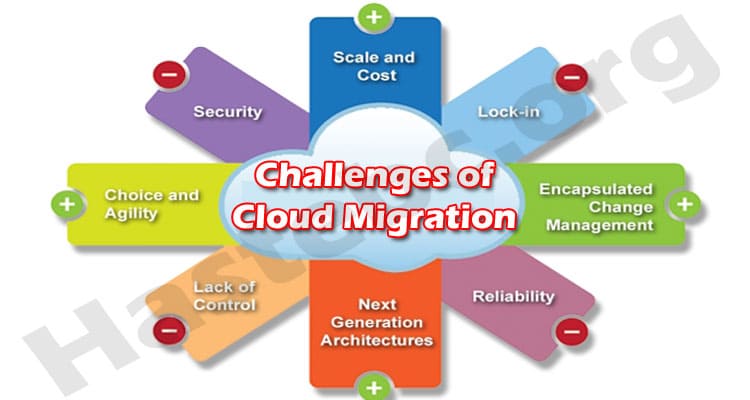Challenges of Cloud Migration: Today, cloud computing is one of the most sought-after technologies by businesses, small and big alike. Running your business on the cloud offers several benefits: scalability, efficiency, enhanced support, and low operational costs. Research indicates that globally, cloud computing is projected to be worth nearly $623 billion by 2023.
According to Forbes, despite the technology’s growth opportunities, most businesses haven’t adopted it fully due to migration challenges. Consequently, enterprises need to devise a rigorous migration plan to overcome the challenges that come with the process.
Here are key challenges of cloud migration and ways to address them:
Skills Gap
Challenge: The process of shifting from a traditional business model to a cloud computing environment may cause fear among your workforce. Some may think you’re looking for a way to replace them by introducing something they’re not familiar with. The adoption of cloud computing requires you to upgrade the skills of your existing workforce. Thus, your business may have to invest in training employees.
Solution: Here, to address this challenge, you’ll need to recruit new individuals with cloud computing skills and upgrade your existing team’s skill sets. For the migration to succeed and achieve the intended goals, you’ll need individuals who understand how the technology works. If necessary, you can also contract a cloud migration consultant to assist your enterprise during the transition period. Specialists will help accelerate the transition process by increasing the Office 365 migration speed.
Data Security and Compliance Risks
Challenge: Data security and compliance concerns are among the main hindrances to cloud computing migration. Often, this is because most enterprises are still reluctant to give out their confidential data to third-party cloud service providers. Close to 56% of business owners admit that they’re worried about cloud security while adopting the technology.
If confidential data is breached through cyber-attack attempts during the cloud migration process, it may cause serious disruption in a company. The greatest risks are due to data sensitivity, particularly as a result of poorly designed applications and delicate access controls to data and the system.
Solution: Nowadays, cloud computing platforms are completely secure, and vendors have state-of-the-art security systems to provide a comprehensive cloud computing environment. A secure cloud migration guarantees that the relocation of your enterprise’s data is completed via a desirable routable path. In turn, this guarantees that private data isn’t viewable and accessible to third parties while migrating, thus eradicating data theft risk and compliance issues.
Unpredictable Cloud Migration Cost
Challenge: Migrating to the cloud can be an expensive undertaking, particularly if you don’t conduct a thorough financial impact in advance. The initial investment cost should include the cost of using the service, migrating, long-term financial risks due to slow adoption, and training required. If all these costs aren’t captured at the initial stages, it can pose a problem during the migration process.
Solution: An excellent way to avoid incurring high costs during a cloud computing migration is to prepare beforehand thoroughly. Here, it would be best if you collaborate with your cloud service provider to determine all the expenditures related to the cloud migration prior to committing your company’s resources. In the long run, cloud migration can help your company cut costs by enhancing productivity, streamlining processes, and lowering administrative costs.
Also, ensure you capture all cost aspects, including operational expenditures (maintenance and labor), administrative expenditures (employee training), and direct expenditures (materials, software licenses, and supplies). Having clear cost estimations will help you understand the project’s scope and set a proper budget for it.
Wrapping Up
Although it’s challenging, businesses must inevitably shift their operations to the cloud computing environment. Your company needs to develop effective strategies to manage the process to migrate successfully. Additionally, you should engage a cloud service vendor with extensive knowledge and experience in issues that pertain to the modern cloud migration challenges.
The major challenges you’re likely to encounter when migrating your business to the cloud include uncertain cloud migration costs and skills gaps among your staff. You’re also likely to face data security and compliance issues as you shift to the cloud. However, you can easily overcome the challenges and have a successful cloud migration process using these strategies.

Caroline is a dedicated writer with a passion for keeping readers informed. Specializing in providing the latest news updates and unbiased reviews, she strives to deliver accurate and insightful content. With a keen eye for detail and a commitment to journalistic integrity, Caroline ensures that her readers are always well-informed. Stay tuned for her latest articles to stay up-to-date on current events and trends.




